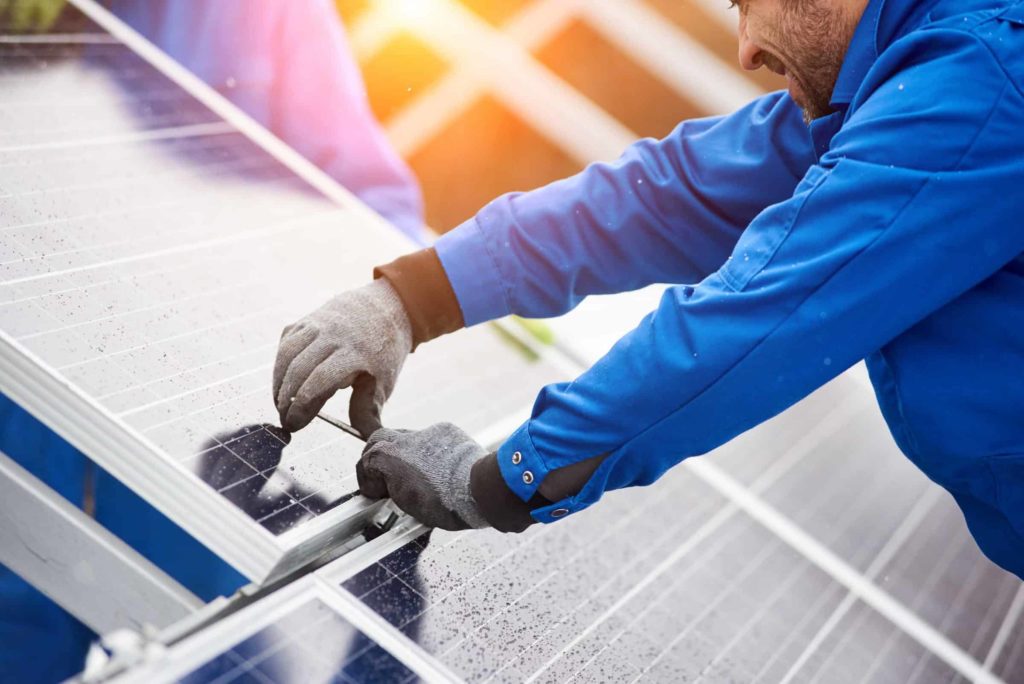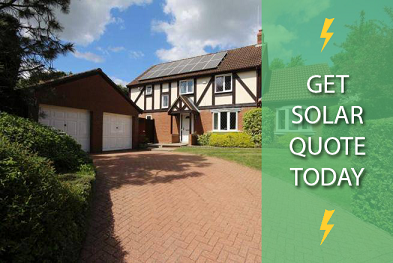Some people are still finding it hard to believe that anyone can benefit from solar energy. We all tend to believe that it rains all the time. The common myth is that you need warmth and blue skies and live somewhere like the Sahara desert to be able to benefit from solar energy.
However, this is far from the truth. Last year Scottish solar capacity grew by 32%. There is around 140MW of solar panels installed across Scotland with oil capital Aberdeenshire leading the way.
Although it is true that you will benefit more if you live somewhere like Africa the Scottish Institute for Solar Energy Research states that ‘looking at the solar irradiation map below, we can see that the solar irradiance in the UK and Scotland is not too dissimilar to Germany – the largest photovoltaic (PV) market in the world…’.
Every household and every company that installs solar panels on a suitable roof will:-
- Reduce their ever increasing electricity bills
- Reduce their carbon footprint
- Receive money for generating electricity (Feed-in Tariff)
- Get a better return for savings than a bank savings account
How to make the most of these solar energy benefits
Businesses
Large buildings e.g. farm buildings, warehouses, a factory, garage or just a large office space may have a large roof that could be utilised. The benefits for a business are:-
- Businesses will often need most of their electricity during the day when solar energy is available, therefore they will reduce how much they need to import from the grid.
- Reduced operating costs especially if you use a large amount of electricity
- Great PR to be a ‘green’ business
- Some commercial sites can make use of both wind and solar power
- Maintenance free
Elderly
There was some bad press a few years ago about rogue salesman pressurising elderly people into spending some of their retirement savings on solar panels where they weren’t appropriate. However, for some, this is an ideal way to spend some savings prior to retirement.
You will be at home more and during the day, so potentially facing larger electricity bills. These bills will increase throughout your retirement making it harder to pay them. Solar power will:-
- Reduce your bills
- Enable you to receive the Feed-In Tariff (FiT) payments for 25 years
- Provide money to pay for future high energy bills by using the Fit
- Make you energy efficient. Being at home means you can use your solar power during the day when the panels are producing the most energy. For example, use the washing machine at 11am, then the dishwasher at 1pm on a good, clear day and it won’t cost you a penny. And you still receive your FiT payment for the energy produced which helps in the long dark, days of winter.
Home-workers & Parents at Home with Young Children
If you are at home much of the day you will have a higher electricity bill than someone who is in an office 5 days a week. The electricity required to run a PC, to boil a kettle several times a day, or for the extra times the washing machine is used because you have young children can be produced by solar power most of the year.
All the benefits listed for the elderly apply for anyone at home most days of the week. They too, can schedule their washings and the use of the vacuum cleaner at times when energy is being produced.
The Future for Solar Energy
We don’t know exactly what the future holds, but we can be certain that non-renewable energy is running out and will become more expensive. Scientists and engineers are working hard to improve all types of renewable energy. They are constantly researching new ideas and improving the technology we already use. People who have already invested in solar power are demanding ways of storing excess power rather than exporting back onto the grid. If they have generated 10kWh on a summer’s day and only used 1.5kWh, they want to save the rest for the evening when they cook and need to put on lights etc. You can buy systems that will heat your water with the excess energy and battery systems that will store the excess, however they are fairly new on the market and still quite expensive.
The cost to install solar power in your home has decreased around 30% in the last 3-5 years. Feed-in Tariff payments are still being paid albeit at a lower rate than before but this is due to the reduction in installation costs. This benefit is likely to continue to drop until it is no longer paid for new installations. Therefore now is great time to install your panels as you will receive FiT payments for 25 years.


